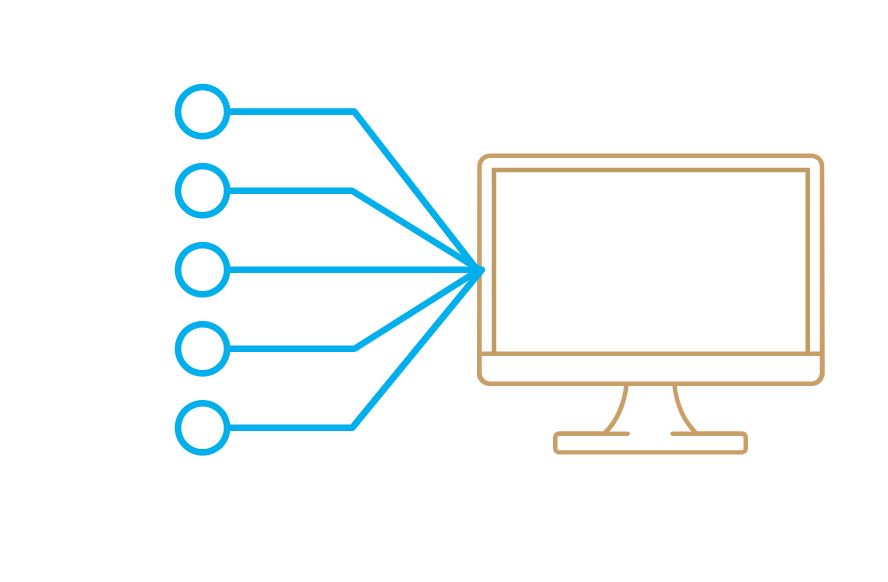In 2016, when Clive Humby declared that “Data is the new oil”, its value continues to emerge for both the private and public sectors. For example, governments have begun to focus on its importance in different aspects such as security, economic planning, infrastructure, and overall national development.
India captured the data of their less privileged in 2018, while Kenya is launching a digital national identity card. Hence, data is a core contributor to any form of development we might envisage in Nigeria.
The private sector continues to thrive based on its appreciation of data. For example, social media services like Facebook, Instagram and TikTok use data to personalize feature content, including recommendations.
The “big data” buzzword formulation testifies to the emerging realization that enormous data is not just raw information but a viable commodity for improved business performance.
On the other hand, the continuous development in technology and internet connection implies that we have massive data in transit.
Cloud computing has further ensured that we have massive data at rest in various storage worldwide. With this data, the modern concern is the best way to refine, process, and transform it into optimal benefit. No wonder that data science and other ancillary fields are increasingly becoming valuable.
In the Nigerian context, the government needs data, and they must take it seriously. I am a bit disappointed that no concrete or great information has emerged concerning data and its usage since the last three months of the new administration. It is not enough to react when the Nigerian Bureau of Statistics releases data. We need a strategic government that sees data as fundamental to the country’s development.
Read also: Airtel Africa announces first Data Center in Lagos
What Nigeria should do on data harmonisation
Let me delve into what should be the starting for Nigeria. Identity data for every resident is fundamental to any government idea or plan. However, this has been neglected for years, with no deliberate move to have a centrally managed identity database for Nigeria. I was aware of some committees by the last administration, but the progress and overall execution remain a dream.
The data of Nigerians, including biometrics, are taken for NIN, BVN, International Passport, voter card, and national identity card, amongst others. These data sit on different silos of databases and warehouses locally and internationally.
We need to harmonize these data. I was at a Conference at the University of Swansea a couple of years back and was amazed by the data service in Wales. Individuals can be factored into their street based on aggregating the various data. How long can we pretend that centrally managed data is not essential? We need to get serious and address this as a national emergency. It is a good starting point that must not be ignored.
Although, the Minister of Interior (Hon. Olubunmi Tunji-Ojo) alluded to the zeal of the current government to pursue this course. However, the modalities and the schedule of its execution remain unclear. The government should come up with a clear definition and presentation of how the harmonization will be conducted. This is important for various stakeholders’ involvement as it must not be left to the ministry alone.
We must be candid: Nigeria’s current public sector cannot achieve this harmonization. This suggestion emanated from my experience during my NYSC primary assignment. My agency contracted its data management to a company that ended up bottling the process, resulting in data lack of integrity or fidelity. Do not forget that the IPPIS implementation in Nigeria still lacks credibility, with the current realisation that thousands of records are either fake or wrongly inserted. The government appears to lack the capacity and competency to handle this significant project.
In other countries, the private sector often handles this kind of project as the public sector’s bottleneck, bureaucracy and inefficiency will affect the efficiency. Private sector involvement must be encouraged to achieve the goal and improve the efficiency of the process. Also, the involvement of different sectors, Ministries and stakeholders must not be ignored.
Read also: NITDA urges AI-Integration in Nigerian security sector
I will acknowledge the work of the Nigerian financial sector in this area. This sector has one of the most accurate data on Nigerians. This harmonization must involve them. Other stakeholders and service providers have data which must be critically informed. Also, the government must not forget that most data has become obsolete and inaccurate since they were collected. In this light, harmonisation in the current state will not amount to a database with a high level of integrity.
However, it is an excellent place to start because the road to having quality data for Nigeria is lengthy and requires constant investment.
Although we always estimate that Nigerians are over 200 million, the reality is harmonizing the different data provides the starting point for achieving the integrity of the census. Over to you, NITDA, Ministry of Science and Technology, NIMC, other agencies and stakeholders.
In my next article, my focus will be on the issue of data integrity and how Nigeria can get it right in achieving efficient data quality.




